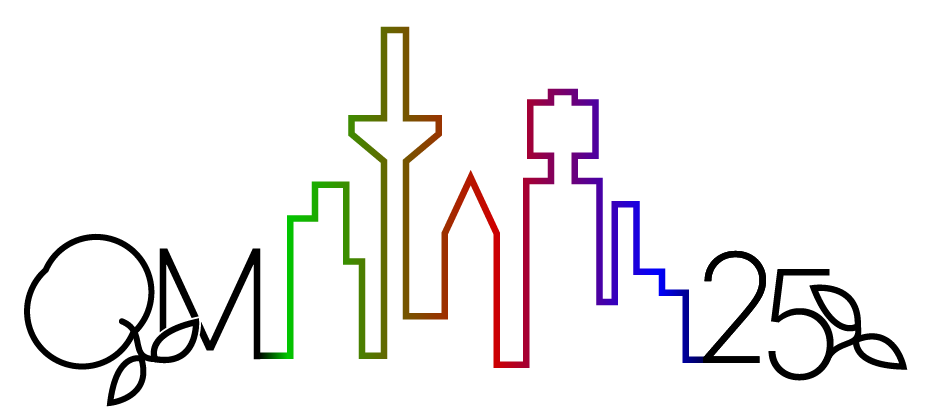Speaker
Description
Self similar evolution in time, also known as a nonthermal fixed point, is one of the stages of thermalization in QCD under the assumption of very weak coupling. This arises in models of ultra-relativistic nuclear collisions and cold atomic gases, for the latter this has been experimentally realized. Nonthermal fixed points are characterized by a universal scaling function and power law exponents. Using QCD kinetic theory in the small-angle approximation, we study how these systems approach the universal regime. Simulations of isotropic, homogeneous gluon gases show that perturbations on top of the scaling function decay following power laws while oscillating, i.e. damped oscillations characterized by complex frequencies. Similar to how quasinormal modes in black hole spacetimes dictate thermalization in strongly coupled quantum field theories via AdS/CFT, we refer to these frequencies as the quasinormal modes of a nonthermal fixed point. We calculate the spectrum of quasinormal modes and find qualitative agreements with the results of time evolution in kinetic theory. This research indicates the first evidence of new physical phenomena around nonthermal fixed points. We expect these to appear in weak coupling models of nuclear collisions at very early times and to be observable in existing cold atom experiments.
| Category | Theory |
|---|
